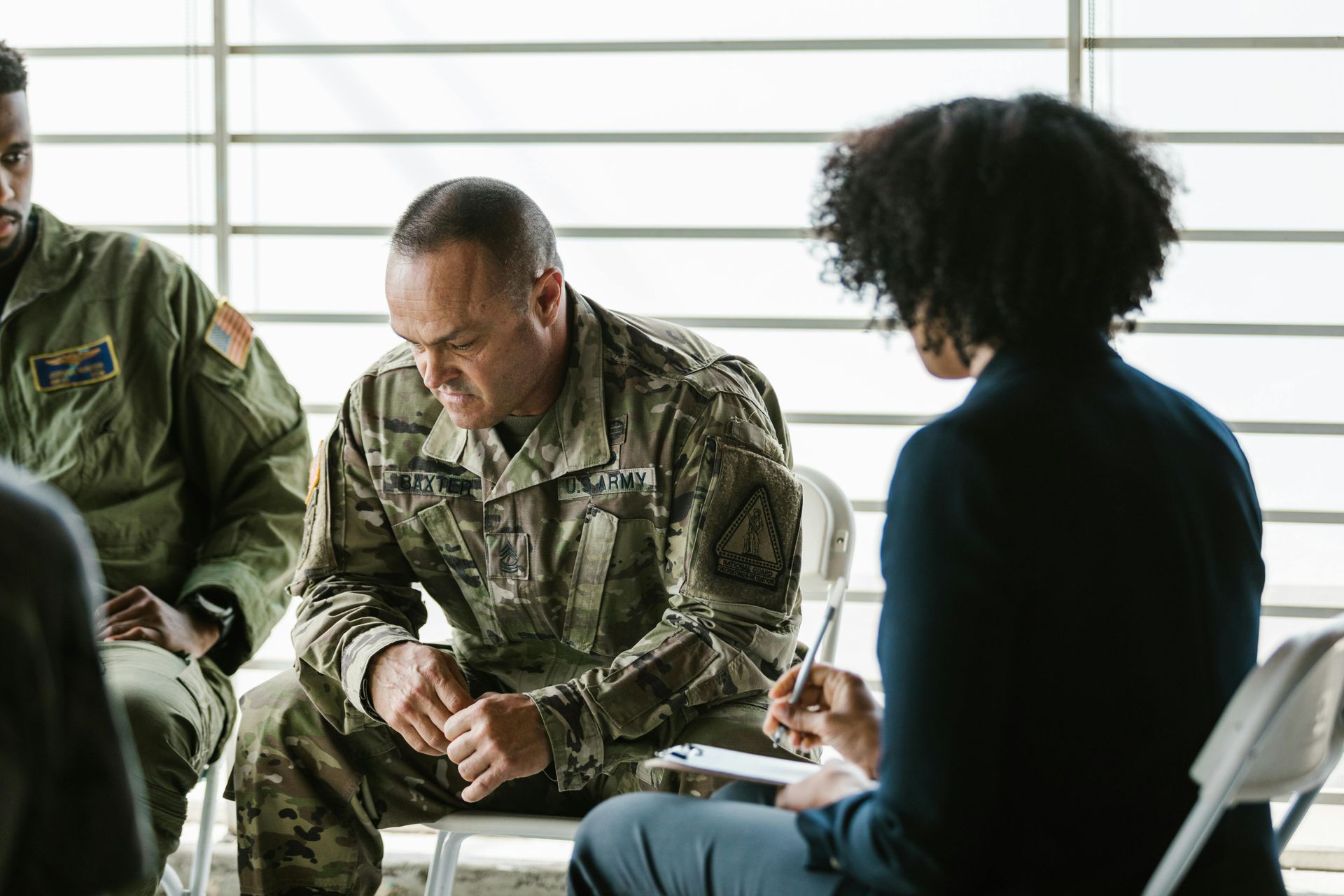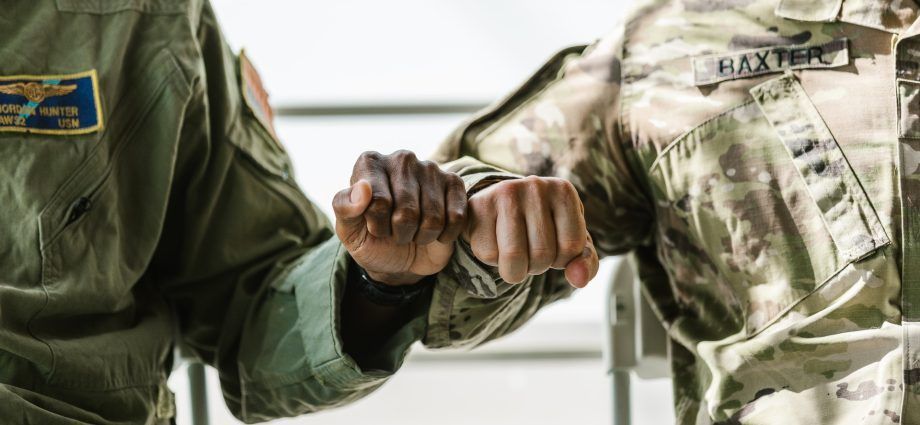What Holds Veterans Back ?
What Holds Veterans Back?
Veterans have everything working for them in theory. They have the work ethic and the discipline as well as a reference from one of the most prestigious organizations in the free world. They have more travel experience than the average American, yet somehow, in the long run, most veterans lag behind in success.
What holds veterans back is, to some extent, physical and, to a much larger extent, mental. That’s why I prioritize positioning mental health problems as important enough to be on par with physical injuries. And they can often be categorized as combat-related.
Veterans can become victims of their own image. Sometimes, becoming great at following orders and coming back to absolute freedom can be daunting. At other times, the attitude that your best days are behind you can cause you to put in minimal effort.
Needless to say, minimal effort gets minimal returns, which further fuels this image. On top of that, the environment is saturated with ungratefulness. While people pay lip service to your service and its value, they see you as potentially violent. This silent judgment can color many hiring decisions.
You should care more about the image you have of yourself. If a thousand people believe something about you, you should be able to believe about yourself what you know to be true even if it doesn’t align with what others believe.
There is enough research to prove that mental blocks are real. People get paid millions to help others overcome them. Performance coaching as an industry wouldn’t exist if breaking mental blocks had no value.
What Do Veterans Need Immediately?
I’m not attempting to make an argument that every veteran needs a coach. Let me explain what every veteran needs right after leaving the military.
But before that, I would like you to think of a time when you had a streak of victories. Wasn’t each subsequent victory easier? That’s what happens when you have the momentum of wins. This happens in reverse as well, which is why there is a standardized term for it in our culture: the downward spiral.
Downward spirals exist because it is hard to come back from an L, and it is easy to keep going in the direction in which one has momentum. When a veteran is discharged, he suddenly loses all momentum. And this is evident in the lack of community above everything else.
The community that is stripped from you can make you feel lonely. If you retreat into your shell, you can continue feeling lonelier, which can impact your mental health. It is more crucial than anything for a veteran to have a supportive community around them.
What Do Veterans Need?
According to my experience as a veteran, as well as my insights working with a few hundred veterans, veterans need the following:
- A supportive community – Most people find theirs in the workplace, but the average unemployed veteran can’t, so he becomes a recluse.
- Mental health resources – Loneliness and PTSD can kill, and veterans aren’t made aware of how mental health problems are no different from physical illnesses.
- A place to belong – This is a core human need that is previously filled by the military. After getting discharged, veterans can congregate in veteran groups but finding a higher purpose is difficult in the absence of a reliable church or an inspiring workplace.
- A chance to add value within a structured environment – Veterans are some of the hardest working people, and after getting out of the military, they’re hungry to continue being productive. But the differences between what constitutes productivity in national diffence and what is valued in the workplace can be jarring for them.
Unleashing Veterans’ True Potential
I analyzed success stories that outshine my own in order to formulate the veteran success plan I’m about to disclose. More specifically, I looked at Dave Goggins, Jocko Willink, and Phil Knight (of Nike) to find the three pillars that are essential to a veteran’s success story.
A Worthy Mission
What is a soldier without a mission? This country has done veterans wrong for so long because it made the mistake of assuming a veteran stops being a soldier. What is even more tragic is that even veterans started believing that they had stopped being soldiers.
From Jocko to Phil Knight, every successful veteran handled himself as a soldier even after retiring. As long as you carry yourself as a soldier and can find a worthy mission, you can continue being excellent without mental barriers getting in your way.
I know this as a veteran. We cannot have the same type of motivation as normal people. Regular folks will take a job they hate and do it for decades because of cash. Veterans don’t want to work for a business they don’t believe in.
A Lack of Mental Limits
It is when a veteran stops seeing himself as a soldier that all the mental limits start appearing. Every human has imposter syndrome, but it is amplified among veterans. They feel like they don’t belong in “normal society.”
Again, the solution is to continue seeing yourself as a soldier, albeit on a mission to leave generational wealth for your family.
A Value-producing Mechanism
Veterans love a plug-and-play system. They like to put in the work and see the results. If you are a veteran with self-worth issues, chances are, you’re not in a value-producing mechanism. From getting a good job to finding the right business, there are plenty of ways to get into a system where your effort yields results that motivate you to propel yourself forward.
Final Thoughts
A mission, lack of mental limits, and a value-producing mechanism can turn any veteran into a success story. I believe in this to the point of starting a community for veteran support and company. If you would like to be a part of a group that helps Veterans take steps to claim their lives back with dignity, then feel free to reach out to me.
About the Author
Tierell Goodman is the founder and CEO of T.S. & F. Consultant and Management L.L.C, an organization dedicated to assisting veterans with increasing their VA disability rating by helping them with the filing and preparation of the VA claims process. His business provides information on key resources available to the veterans that are diagnosed with Post-Traumatic Stress Disorder (PTSD) or military sexual trauma (MST) for assistance.











